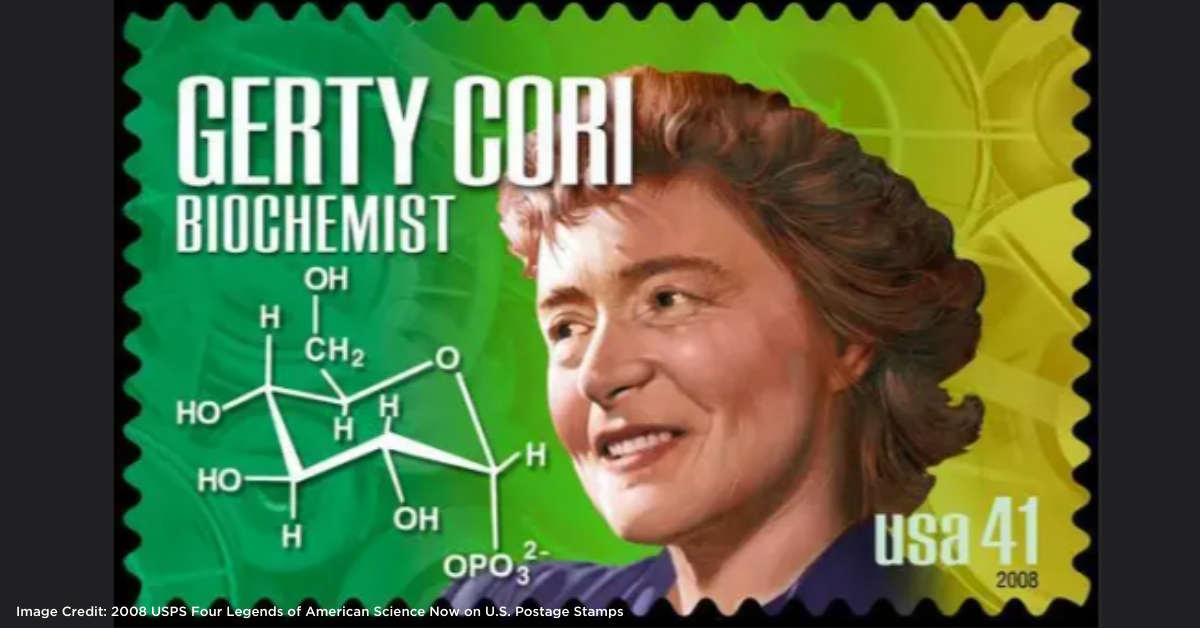
Dr. Gerty Cori, born in Prague in 1896, was a pioneering biochemist who made significant contributions to the understanding of carbohydrate metabolism, along with her husband, Dr. Carl Cori. She earned her medical degree from the German University of Prague in 1920 and later moved to the United States with her husband. Together, they conducted groundbreaking research on glucose metabolism, leading to the discovery of the Cori ester in 1936, which explains how the body processes energy. This work was crucial for advancing diabetes treatment. The Cori’s continued to work together even though others discouraged them from doing so.
As a woman, Dr. Gerty Cori was forced to accept lower level of positions due to her gender, even though she had the same level of education and experience as other researchers, including her husband. Two institutions also refused to hire Dr. Gerty Cori, while trying to recruit her husband. In 1931, the two continued their work at the Washington University School of Medicine in St. Louis where Dr. Carl Cori was a Professor of Pharmacology and Dr. Gerty Cori was identified as his “research assistant”. It was not until 1946 that Dr. Gerty Cori was promoted to a full-time professor.
Despite facing gender-based challenges, Dr. Gerty Cori’s scientific achievements were finally recognized in 1947 when she and Dr. Carl Cori were awarded the Nobel Prize in Physiology or Medicine “for their discovery of the course of the catalytic conversion of glycogen.” The Coris continued making groundbreaking medical discoveries, including the role of lactic acid in converting glucose to muscle glycogen, a process now known as the Cori Cycle. The Coris were also recognized for their research into how different hormones impact carbohydrate metabolism. Additionally, they found that insulin activates the enzyme hexokinase, which aids in the conversion of glucose into glycogen, while a hormone released by the pituitary gland inhibits the enzyme’s activity.
Dr. Gerty Cori’s legacy is marked by her resilience and contributions to biochemistry, paving the way for women in science. Her work not only advanced the understanding of metabolic processes but also set a precedent for collaborative scientific research. She remains a celebrated figure in the scientific community, remembered for her perseverance and groundbreaking discoveries. Hooper, Lundy & Bookman, P.C. is proud to honor Dr. Gerty Cori’s life and legacy for Women’s History Month.
“The unforgotten moments of my life are those rare ones which come after years of plodding work, when the veil over nature’s secret seems suddenly to lift, and when what was dark and chaotic appears in a clear and beautiful light and pattern.” –Dr. Gerty Cori
“Contemplation of the great human achievements through the ages is helpful to me in moments of despair and doubt. Human meanness and folly then seem less important. Humanity has but a short history of civilized life and the hope for greater wisdom must resign itself to a fairly distant future. Gone are the somewhat utopian hopes of my youth, the belief in rapid continuous progress. Hope remains, but the time scale has widened.” –Dr. Gerty Cori